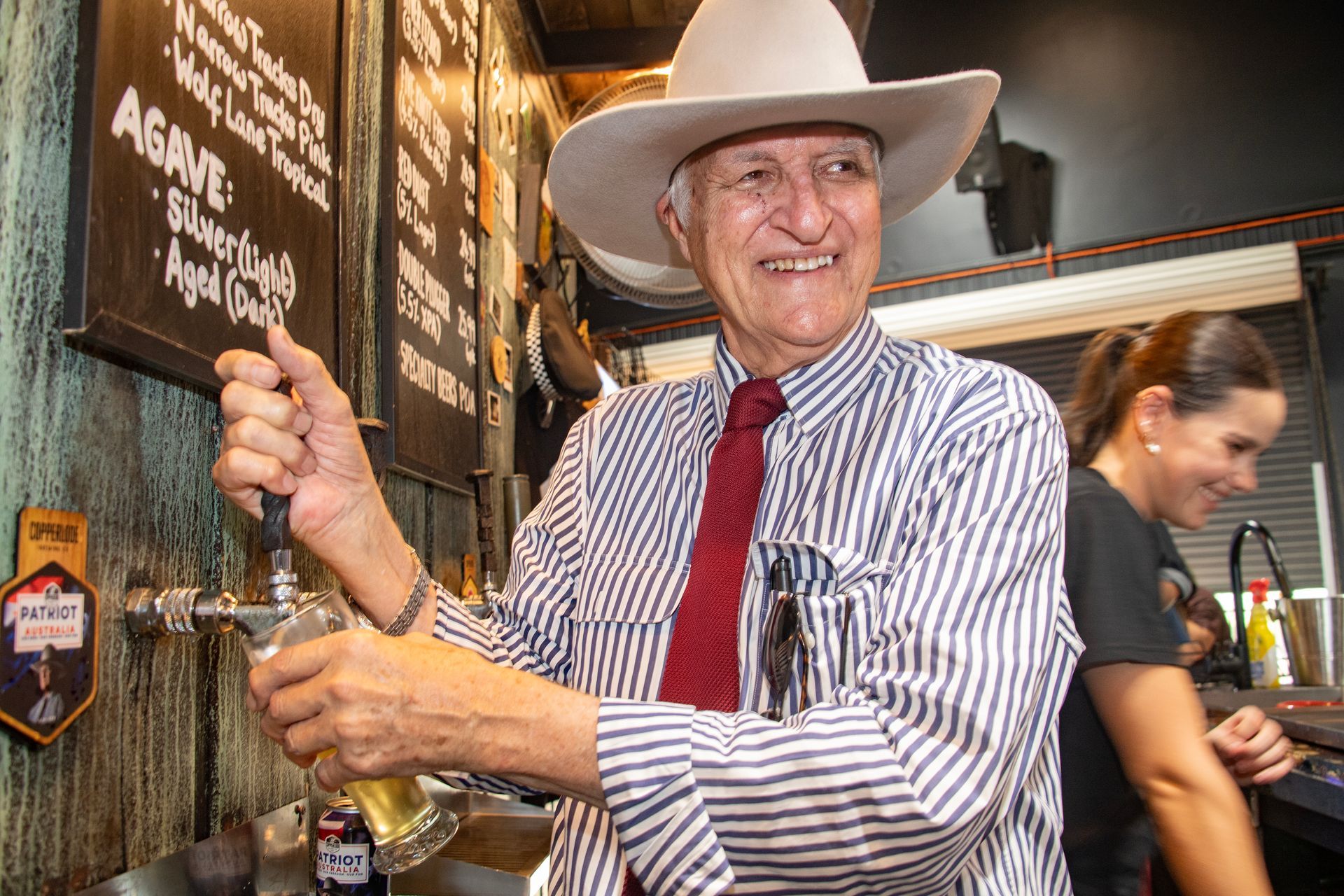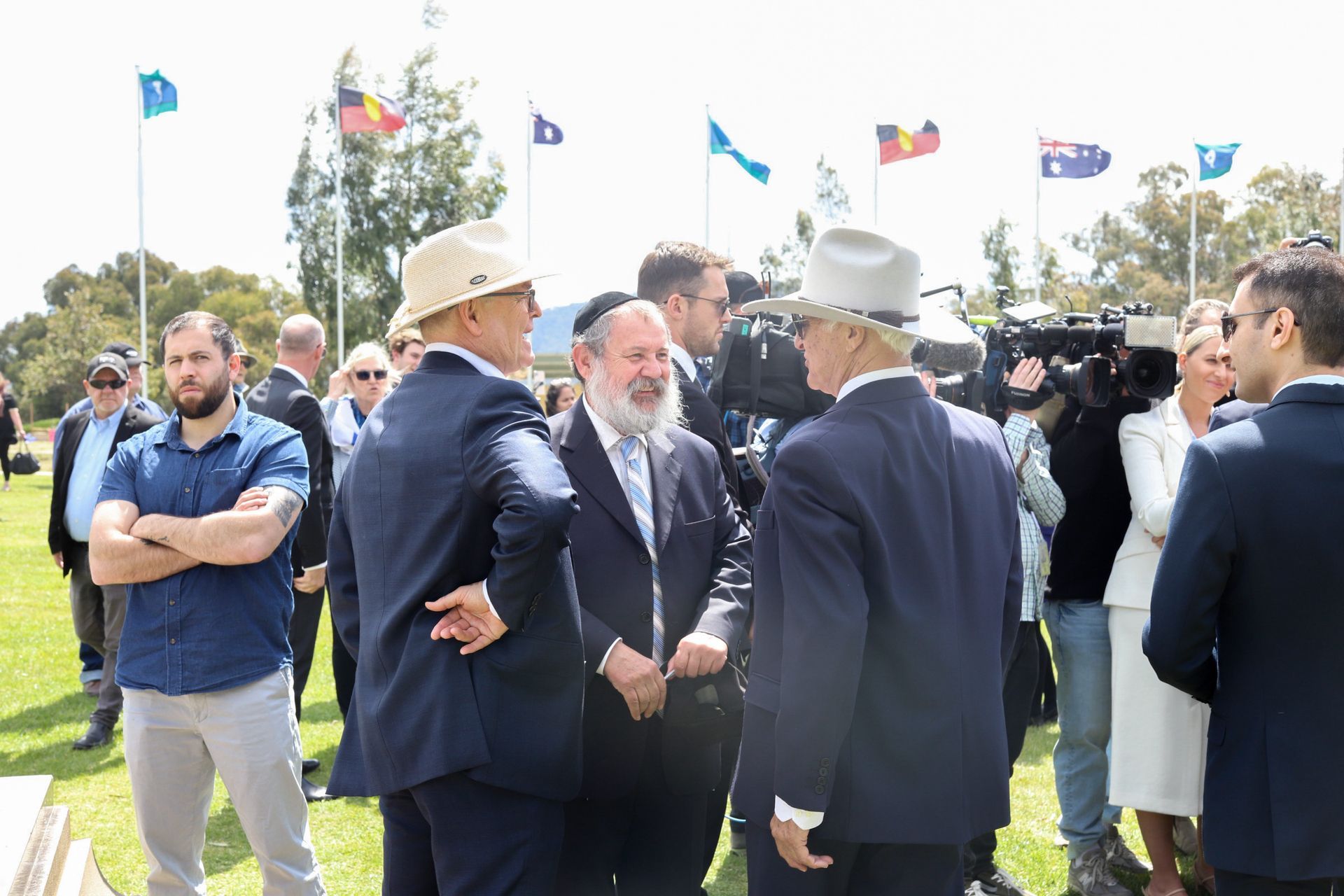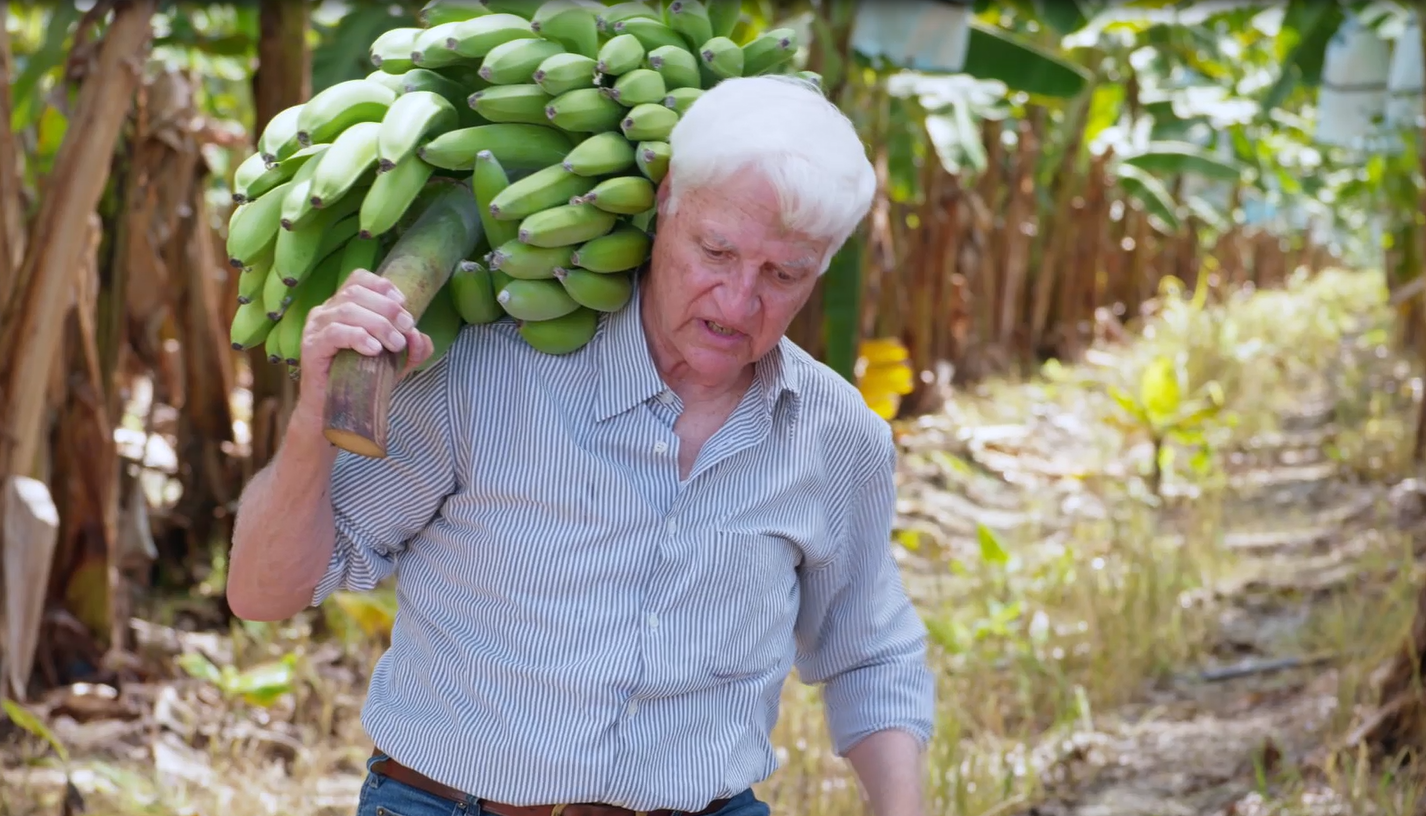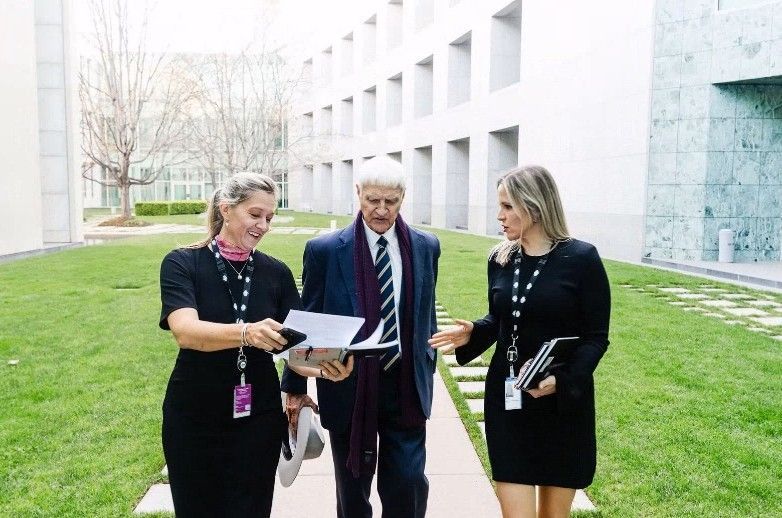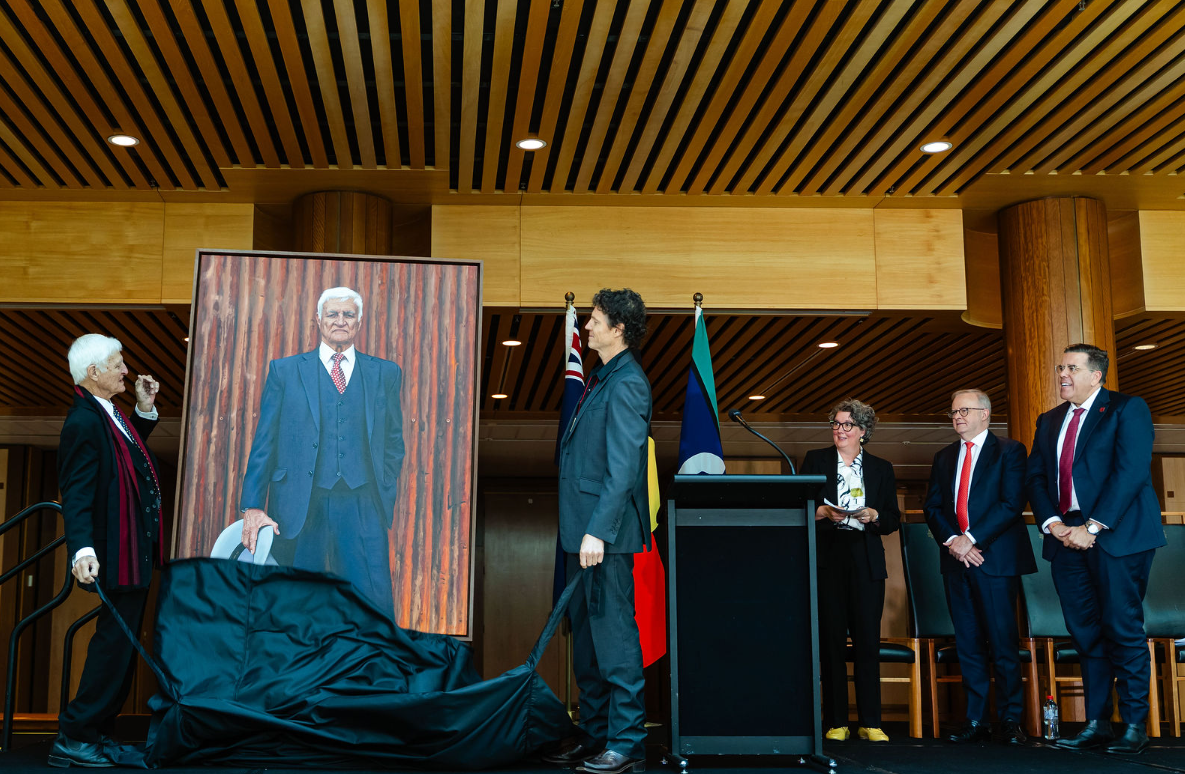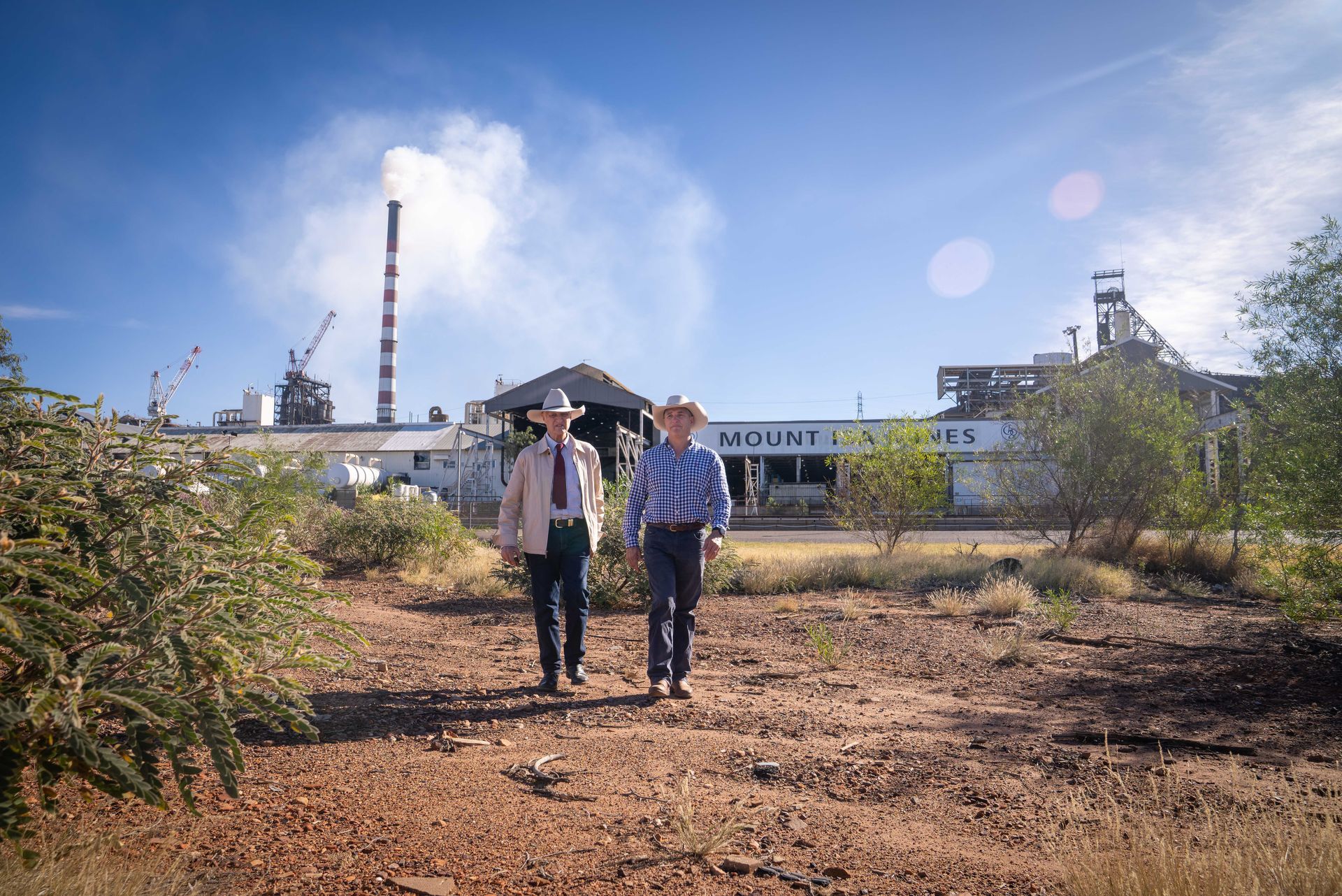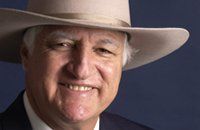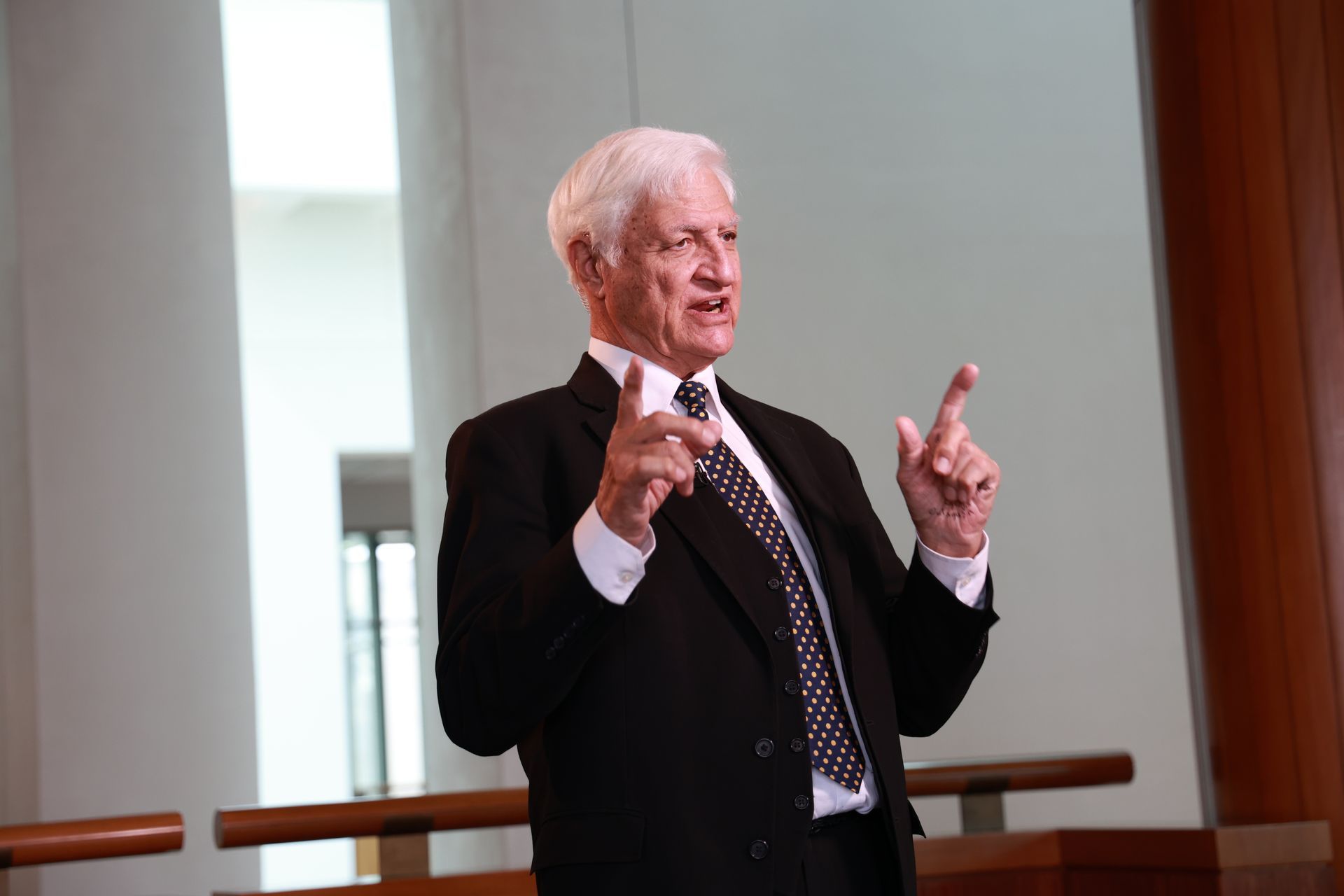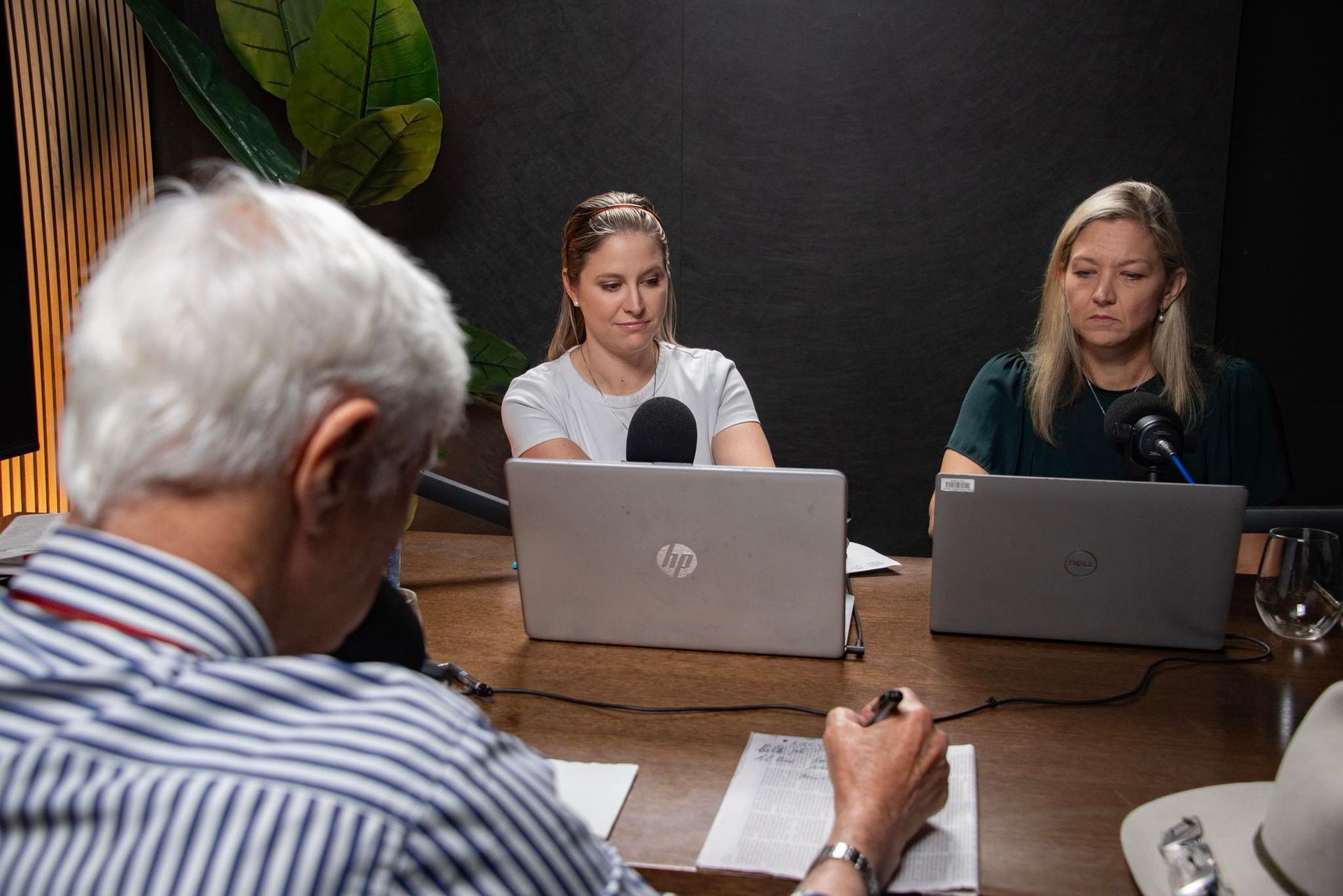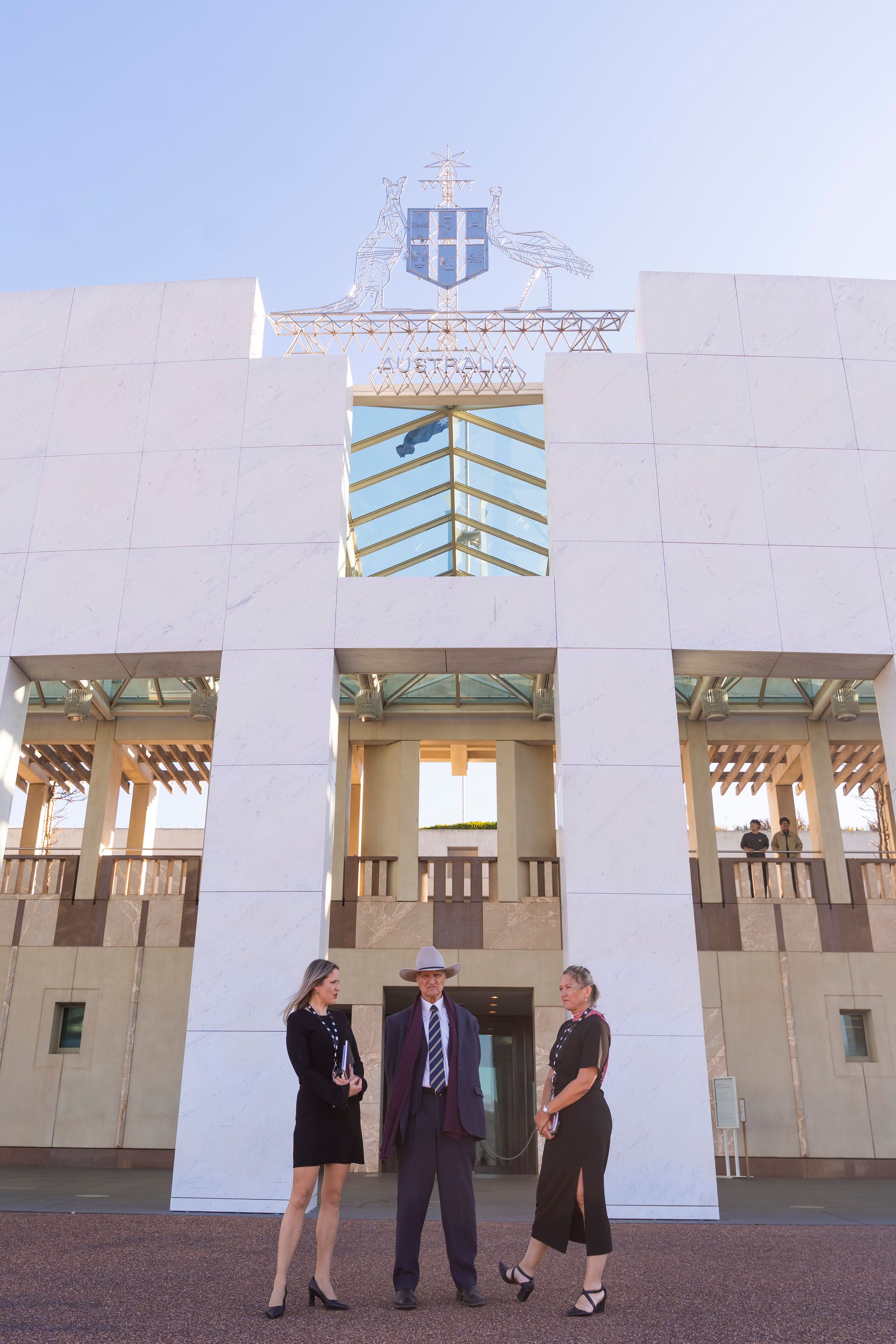Mixed bag for North Queensland in Federal Budget: Katter
KENNEDY MP Bob Katter has welcomed significant announcements listed in the Federal Budget for North Queensland including $225m for exploration grants in the resource-rich “North West Minerals Province” near Mount Isa, significant investments in protecting Australia against foot and mouth disease, grants for invasive weeds and feral pigs, and funding to improve telecommunications in the electorate’s many black spots.
Despite this, Mr Katter warned that cost pressures will be placed upon Australia’s largest employer group, small business owners, who will now be forced to foot the bill of the expanded paid parental leave.
Resources
The Federal Government has announced $225m for exploration grants in the North West Minerals Province and $99.8m over three years from 2022–23 for the Strategic Critical Minerals Development Program to support Australian critical minerals producers overcome technical and market access barriers.
“North Queensland is the hub of new-age minerals, the minerals we require to produce batteries for electric motor cars – nickel, cadmium, copper.
“We asked the Prime Minister on Tuesday if he was aware of the North West’s potential, and we were very pleased with his answer recognising the availability of minerals and their sovereign requirement.
“And the PM’s has been as good as his word with serious money in the budget. It seems a government at long last has seen what we clearly see in the North West.”
Mr Katter also welcomed $22m to develop Townsville’s Lansdown Eco-Industrial Precinct, which will host advanced manufacturing and technology industries that will underpin future jobs in North Queensland.
“We’ve had conversations with the French company supplying the nickel and cobalt and they are taking this project of new-age minerals very seriously.”
Agriculture
Mr Katter welcomed the Government’s announcement to right off $14.7m in debt for 5300 farmers through the Farm Household Allowance scheme.
“This wonderful scheme was secured by Mareeba’s rural allowance action council and if your farm did not make its repayments, the government topped you up. On the evidence we have, one in five Australian farmers survived only because of this wonderful scheme.
Mr Katter also praised significant investment into biosecurity which included $14m to improve defence against lumpy skin disease, $14m to improve defence against foot and mouth disease, as well as a $10m package for Indonesia to prevent the latter disease entering Australia.
There was also $30m announced for the removal invasive species, which in North Queensland include feral pigs and prickly acacia and there was a further $13m announced for innovative measures to remove invasive weeds.
“With the notorious prickly acacia and the pig devastation we have got to ensure that it gets priority in that $30m. It would appear that the pyrolysis type conversion of pricky acacia in Townsville surrounds can be seriously addressed with money from this $13m pool.”
Water
Mr Katter said there was still hope for the Hughenden Irrigation Scheme after the government announced deferring funding of $899.5 million of water projects including HIPCo to be reconsidered once business cases were completed. The Government will retain $1.0 billion over eight years from 2026–27 in the National Water Grid Fund to support future projects.
“They want a business case, well the business case is already there. But this is a project, that unless we’re going to accept the depopulation in 95 per cent of Australia, they have to look at Hughenden.
“The survival of this nation seriously depends on the occupation of the landmass of Australia. I think there has been a disconnect between the departments and ministers here.”
Mr Katter said he wasn’t surprised to see $5.4bn for Hells Gate had been scrapped.
“I can understand the decision because the proposal before the Federal Government, no sane person could have proceeded with that proposal and it didn't produce anything for North Queensland, it destroyed the five great benefits that flowed from the proper Hells Gate proposal.”
Jobs and skills
Mr Katter welcomed the Government’s move to increase the migration cap from 165,000 to 190,000 to address the workforce shortage, but said he was concerned about the focus of that migration cap being on Afghanistan.
“It is very worrying because they have a continuous history of violence, they have no history of democracy, rule of law or award wages.
“You must give priority to nations with similar values.”
Mr Katter also welcomed the announcement allowing pensioners returning to work to earn $11,800, up from $7,800 without having their payments affected.
“That’s excellent news and whilst it’s a trial we have got to make sure it becomes permanent; they are a highly skilled workforce. To put an irreplaceable workforce on the scrapheap is beyond my understanding.”
Telecommunications:
With multiple mobile blackspots throughout the Kennedy electorate, Mr Katter said it was always welcomed news to see continuous funding for improved telecommunications.
The Government is investing $111m to improve mobile coverage part of Mobile Black Spot Program to implement commitments for new mobile infrastructure to improve mobile coverage and reception quality across Australia as well as $30m for the On Farm Connectivity Program to support farmers and agricultural businesses to purchase and install on farm connectivity equipment.
“Mareeba, Cairns, Fishery Falls and Mission Beach are red hot with black spots. We need the local communities and council to pick up the initiative and aggressively make sure we get this funding to improve coverage.”
Fuel
Mr Katter welcomed the announcement for $5.1m over three years from 2022–23 to support the development of sovereign capacity in renewable fuel manufacturing, particularly for the Australian Defence Force.
Mr Katter has long been an advocate for sovereign fuel manufacturing and with fellow crossbenchers is preparing to introduce legislation to increase the manufacturing and use of Australian-made fuel.
“We’ve got our foot in the door here, we want all fuel to be used in Australia, to be manufactured in Australia. This is a small start, but it is a start. No doubt in my mind this came from our crossbench initiative.
“We feel on the crossbenchers confident we’ve got the foot in the door, with our four-pronged legislation.”
Rural and regional Health
The Federal Government announced $50,000 one-off grants for regional medical practices to help them improve patient access, for capital works, training, or purchase new equipment.
The Government also announced $2.5 billion over four years to improve the quality of care in residential aged care facilities by requiring all facilities to have a registered nurse onsite 24 hours per day, seven days a week.
“We thank all the people who have made representations to us, Dieticians Australia, the NQ Nurses Union, the Primary Health Network, and I would single out Dr Lisa Fraser, Dr Rod Catton, Dr Grant Manypeney for their continuous efforts in advocating for regional health. We’ve welcomed the previous increase in wages and the HECS announcement, but we still have no doctors in many of our towns.”
Mr Katter said the reduction of the PBS co-payment from $42.50 to $30 “was not as good as it appears” because it made the threshold for free medication harder to earn, but it was a step in the right direction towards affordable health.
Roads
The Federal Government’s announcement of $210m for the upgrade of Kuranda Range Rd was labelled as “absolutely appalling” by Mr Katter.
“The only thing you can start doing there is tearing down the jungle and rainforest. That money has got to be spent on developing the tunnel, the Bridle Track, through the range. I tenaciously oppose this.”
However he welcomed $2.1bn for projects in Queensland, including $866.4m for the Bruce Highway and $400m for the Inland Freight Route (Mungindi to Charters Towers) upgrades.
Cyclone reinsurance pool
The previously legislated cyclone reinsurance pool has received $15m for oversighting by the ACCC to ensure premiums are fair.
“This is vital. We’re paying 400 per cent more for insuring our house. We got the breakthrough for reinsurance from the last government and now Alliance has led the charge on our behalf, they said it does not achieve parity, so if they’re right, there’s $15m now to see if they’re right.
“And, I haven’t noticed a decrease in premiums like there should have been.”
Childcare
Mr Katter welcomed the Government’s $4.7bn to make early childhood education and care more affordable for Australian families. From July 2023, Child Care Subsidy rates will increase up to 90 per cent for eligible families earning less than $530,000. Families will continue to receive existing higher subsidy rates of up to 95 per cent for any additional children in care aged 5 and under.
“We are simply persecuting people who have families, people cannot afford to have children and we are a vanishing race.
“I’ve had staff who’ve spent up to 70 per cent of their salary on childcare. We need to support Australian families, or in 20 years’ time, death will exceed births.
Mr Katter was critical however, of the expansion to the paid parental leave program, arguing that it would bring with it, cost pressures to the mum and dad business owners throughout the region who will have to foot the bill.
ENDS
